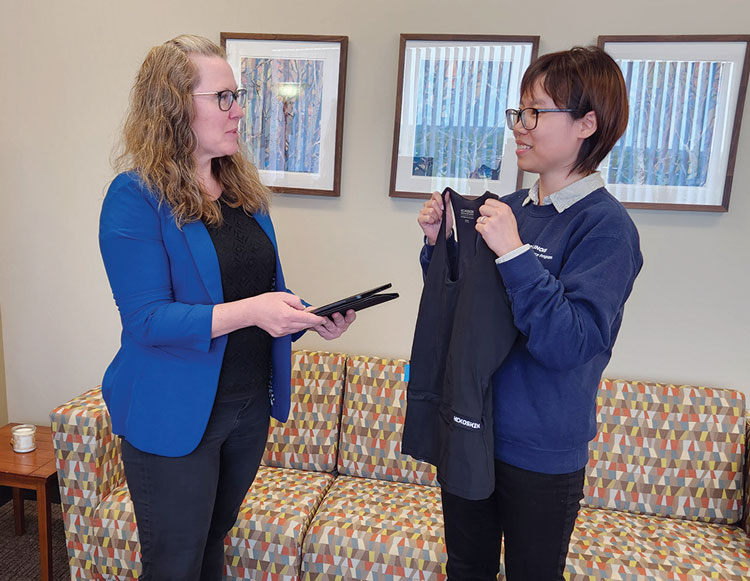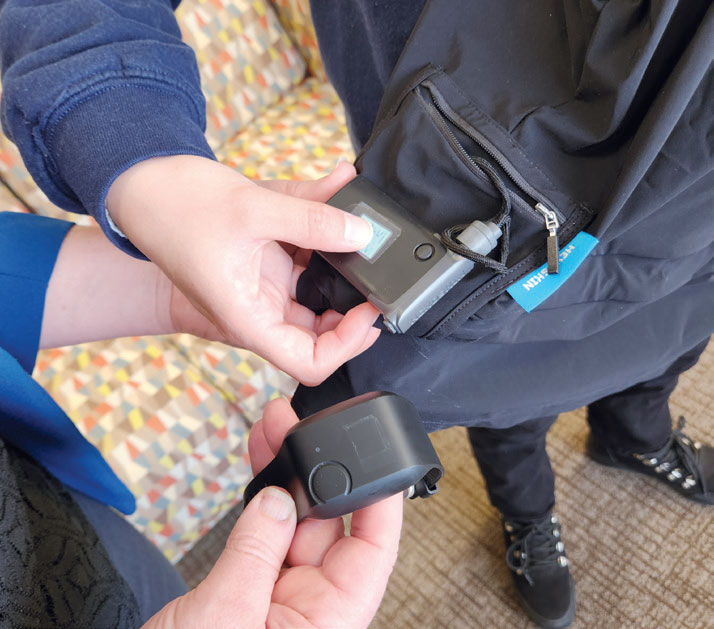Pathways: Study Focuses on Quantifying Stress in Medical Students
Study Focuses on Quantifying Stress in Medical Students

UICOMP Associate Professor of Clinical Psychology Jay Clore, PhD, is collaborating with researchers at the University of Illinois Urbana-Champaign (UIUC) to learn more about monitoring stress in healthcare workers through wearable technology. What the research team learns may be used in the future to help clinicians and, in turn, patients better understand anxiety and an individual’s response to stressors. “Anxiety, like many mental health conditions, is often subjective and difficult to quantify. This study gives us concrete, objective data at the individual level. Combining this data with patient self-report and reflection may help clinicians to better understand what patients are experiencing and provide a great tool to aid in the assessment and treatment of anxiety,” says Jay Clore.
The study team includes Clore, and from UIUC: Biomedical and Translational Sciences Teaching Associate Professor Manuel Hernandez, PhD; Mechanical Science and Engineering Professor Elizabeth Hsiao-Wecksler, PhD; Industrial and Enterprise Systems Engineering Professor Richard Sowers, PhD; and graduate student research assistants Abdul Alkurdi, Jonathan Cerna, Ayse Dogan and Maxine He. The research project was initiated by a pilot grant in 2021 through the Jump ARCHES (Applied Research for Community Health through Engineering and Simulation) research and development program and involves monitoring stress responses of medical students through wearable technology using machine learning and artificial intelligence to objectively and automatically predict anxiety. Study participants are third-year medical students starting their clinical rotations, a time in medical school that presents a significant transition. Focusing on students at this stage provides further insight into mental health and wellness of medical students, says Hernandez. “In particular, clinical rotations provide a proxy for medical environments, and a starting point for evaluating the mental health and wellness of all medical care team members, from medical students to residents, to attendings, and others,” he says.
Study Focuses on Quantifying Stress in Medical Students

Each student is equipped with two wearable devices – a Hexoskin smartshirt with embedded sensors and an Empatica E4 wristband. These devices measure physiological data, such as heart rate, breathing, body movement, and skin conductance (or how sweaty the skin is). Participants wear the devices six to eight hours per day for two 2-week periods. In addition to collecting the data from the devices, students also provide daily self-reporting of stress levels through customized surveys to capture their psychological state. Students also report any stressful events they experience throughout the day. Maxine He, doctoral candidate in the UIUC neuroscience program, explains that the eventual goal of the study is to implement machine learning models to classify anxiety level using physiological signals from wearable devices and self-report data and to compare the variations in anxiety level between lower-stress and higher-stress situations. Hernandez hopes the study will provide a foundation for the development of a novel machine learning framework for detecting anxiety.
This study launched in 2022 and will be enrolling the third co-hort of UICOMP students in 2024. Carle Illinois College of Medicine enrolled its first cohort of students this year.
This article is part of the Summer 2024 issue of Pathways magazine.